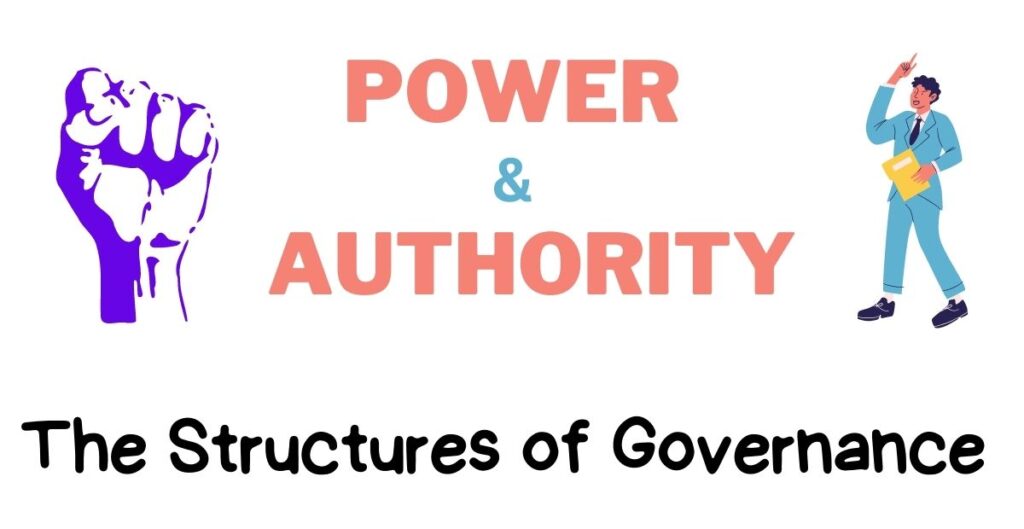Power and authority are integral to political systems and vital in shaping governance structures and societal dynamics.
Understanding the complex interplay between power and control is crucial for comprehending how political systems function and their impact on individuals and communities.
This article will explore the intricate realm of power and authority, exploring their definitions, importance, and how they shape governance structures.
By utilizing the capabilities of a thesis generator, we will uncover unique perspectives and valuable insights to shed light on the dynamics of power and authority in politics.
Defining Power and Authority: Key Concepts in Political Governance
Power is the capacity to exert influence or control over others. It can appear in various ways, including physical strength, wealth, information, or persuasive abilities.
On the other hand, the term “authority” refers to the legitimate right to use force. It is drawn from the approval and permission of the governed. Authority giving power a recognized and approved status offers a framework for using the power within established norms and regulations.
Must Read Guide– 10 Key Differences Between Power and Authority
Traditional Authority: The Impact of Customary Practices on Power Structures
Traditions, beliefs, and long-standing practices are the foundation of traditional authority. It is frequently linked to tribal or hereditary monarchs where authority is passed down through the generations.
The perception of the traditions and conventions upon which traditional management is based determines its legitimacy. However, conventional authority may confront difficulties when civilizations change, and new power structures form in contemporary society.
Must Read- Political Sociology: Understanding Its Meaning, Nature, and Scope
Legal-Rational Authority: Power Embedded in Institutional Frameworks
Legal-rational authority is based on formal rules and institutional frameworks. It is typically found in democratic societies, where power is derived from positions within established institutions and organizations.
This authority is grounded in the rule of law and adherence to constitutional processes. The legal-rational authority provides a system of checks and balances that ensure the exercise of power remains within defined boundaries and is subject to accountability.
Charismatic Authority: Exploring the Influence of Personal Qualities in Leadership
Charismatic authority arises from the personal qualities and charisma of an individual leader. Charismatic leaders can inspire and mobilize others through their unique qualities, vision, or persuasive abilities.
This type of authority often emerges during times of crisis or social upheaval, as charismatic leaders can rally support and drive significant change. However, charismatic authority can also be volatile, as it heavily relies on the personality and influence of the leader.
Power and Decision-Making: Understanding the Complex Interplay
Power impacts decision-making processes within political frameworks. Those in influential positions shape policies, allocate resources, and set plans.
The dispersion of power within a society or establishment determines who has a say in decision-making and whose interests are prioritized. Nonetheless, the direction isn’t exclusively directed by power dynamics. Different elements, like general assessment, institutional systems, and balanced governance, additionally play vital roles.
The Role of Institutions: Navigating Power and Authority in Governance
Institutions are fundamental structures within political systems that exercise power and authority. These can include branches of government, legislative bodies, judicial systems, and bureaucratic organizations.
Institutions serve as mechanisms to distribute, balance, and check the exercise of power. They provide frameworks for decision-making, policy implementation, and accountability. Well-functioning institutions are essential for maintaining stability and upholding the principles of governance.
Must Read Guide- Governance: Meaning, Definition, 4 Dimensions, And Types
Social Developments and Power: Catalysts for Transforming Political Structures
Social developments are fundamental in testing existing power structures and supporting change. These developments frequently emerge from societal discontent with the state of affairs and try to address social, monetary, or political disparities.
By assembling aggregate activity and bringing issues to light, social developments can apply strain on people with significant influence, shaping policies and agendas. They can be powerful catalysts for societal transformation.
Must Read Guide- Good Governance: Definitions, 8 Characteristics, And Importance
Democracy: Power and Authority through the Consent of the Governed
Democracy is a system of governance that emphasizes the participation and consent of the governed. In democratic societies, power and authority derive from the people’s will, who elect representatives to make decisions on their behalf.
Democratic systems aim to distribute power and provide mechanisms for accountability, transparency, and the protection of individual rights. Democracy seeks to ensure that power is exercised with the consent and for the benefit of the governed.
Implications of Power and Authority: Shaping Political Systems and Society
The distribution and exercise of power and authority have profound implications for political systems and society. Power imbalances can lead to social, economic, and political inequalities, affecting the lives of individuals and communities.
The consolidation of power in the hands of a few can hinder progress, stifle dissent, and perpetuate injustice. Understanding these implications is crucial for designing governance systems that promote fairness, equality, and societal well-being.
Building Legitimacy and Trust: The Significance of Consent in Governance
Legitimacy and trust are vital elements for effective governance. Legitimate power and authority are built upon the consent and acceptance of the people.
When individuals perceive those in power as fair, they are more likely to comply with laws, participate in decision-making processes, and support governance efforts. Building trust requires transparency, accountability, and responsiveness to the needs and aspirations of the people.
Preventing Abuse of Power: Safeguards, Transparency, and Accountability
Power can result in corruption, repression, and the infringement of human rights. Putting in place safeguards, fostering transparency, and ensuring the enforcement of accountability mechanisms are fundamental to preventing such abuses.
These measures encompass impartial judicial systems, vigorous oversight organizations, whistleblower protections, and a free press. By guaranteeing transparency and holding individuals in positions of influence responsible, societies can mitigate the risks associated with the misuse of power.
Power, Authority, and Social Change: Advancing Equality and Progress
Social developments can shape political frameworks and cultivate progress by challenging harsh frameworks and upholding minimized gatherings. The interplay between power, authority, and social change is intricate and requires progressing exchange, coordinated effort, and commitment to advance equality and societal prosperity.
Power elements altogether influence social change. Social developments, driven by a craving for equality, equity, and human rights, challenge existing power structures and promote transformative change.
Conclusion
Power and authority are fundamental parts of political governance. Grasping their definitions, dynamics, and suggestions is significant for comprehending the structures and working of governance frameworks.
The interaction between conventional authority, legitimate, reasonable authority, and charismatic authority shapes emotional cycles, the job of establishments, and the potential for social change.
Building authentic, responsible, and comprehensive frameworks guarantees that power is practiced capably and in the best interest of society. Social orders can advance trust, support, and progress by taking a stab at evenhanded and straightforward governance.
let me share with you what you have learned from “Power And Authority: The Structures of Governance “

